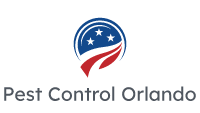Welcome to my blog, Pest Control Orlando! In today’s article, we will be exploring a common question: «What chemical do most pest control companies use?» Discover the most commonly used chemicals by Pest Control Orlando Companies and gain insights into their efficacy and potential impact on the environment. Stay tuned for an informative and comprehensive analysis!
The go-to chemicals used by most pest control companies in Orlando
The go-to chemicals used by most pest control companies in Orlando vary depending on the type of pests being targeted. For general pest control, insecticides such as pyrethrins and pyrethroids are commonly used. These chemicals work by disrupting the nervous system of insects, leading to their death.
For termite control, termiticides are utilized. One commonly used termiticide is fipronil, which is highly effective at eliminating termite colonies. It is applied to the soil around the perimeter of a building or injected directly into infested wood.
In addition to insecticides and termiticides, rodenticides are often employed to control rodent infestations. Commonly used rodenticides include warfarin and bromadiolone, which work by causing internal bleeding in rodents.
It is important to note that while these chemicals are effective in pest control, they should be used with caution and by trained professionals to ensure the safety of humans and the environment.
Frequent Questions
What are the most commonly used chemicals by pest control companies in Orlando?
In Orlando, pest control companies commonly use the following chemicals:
1. Pyrethroids: These synthetic insecticides are effective against a wide range of pests, including mosquitoes, ants, and roaches. Pyrethroids work by disrupting the nervous system of insects.
2. Organophosphates: These chemicals are used to control various pests, such as termites, fleas, and ticks. Organophosphates inhibit the activity of specific enzymes in the nervous system of pests, leading to paralysis and death.
3. Chlorpyrifos: This organophosphate pesticide is commonly used against termites and other wood-destroying insects. It is also effective against a variety of household pests.
4. Fipronil: This broad-spectrum insecticide is used to control termites, ants, and other pests. Fipronil acts on the central nervous system of insects, causing hyperexcitation and eventual death.
5. Boric acid: This low-toxicity chemical is often used for long-term pest control, particularly against cockroaches and silverfish. Boric acid disrupts the digestive system of insects, leading to dehydration and death.
It is important to note that the specific chemicals used by pest control companies may vary depending on the type of pest being targeted and the severity of the infestation. Professional pest control technicians are trained in the safe and effective application of these chemicals to ensure minimal risk to humans and pets.
Which chemical is considered the most effective for pest control in Orlando?
The most effective chemical for pest control in Orlando is typically a synthetic pyrethroid called bifenthrin. Bifenthrin is known for its broad spectrum control of many common pests in the area, including ants, roaches, fleas, ticks, and mosquitoes. It is highly effective in both indoor and outdoor settings and provides long-lasting residual control. When applied according to label instructions by licensed professionals, bifenthrin is considered safe for humans and pets. However, it is important to always follow proper safety precautions when using any type of pesticide.
Are there any specific regulations or guidelines regarding the use of chemicals by pest control companies in Orlando?
In Orlando, pest control companies are required to adhere to specific regulations and guidelines when it comes to the use of chemicals. The Department of Agriculture and Consumer Services (DACS) is responsible for overseeing and enforcing these regulations.
Firstly, pest control companies in Orlando must be licensed by DACS to legally operate. This ensures that they have met certain criteria and have demonstrated their ability to handle and apply chemicals safely and effectively.
Secondly, pest control technicians are required to be certified by DACS. They must complete a training program and pass an exam to obtain this certification. This ensures that they have the necessary knowledge and skills to handle pesticides responsibly.
Thirdly, pest control companies are required to follow Integrated Pest Management (IPM) practices. IPM focuses on a holistic approach to pest control, emphasizing prevention, monitoring, and the use of non-chemical methods whenever possible. Chemicals are only used as a last resort.
Lastly, there are strict regulations regarding the storage, transportation, and disposal of chemicals. Pest control companies must follow proper protocols to ensure the safety of both their employees and the environment.
Overall, these regulations and guidelines aim to protect the public, the environment, and the pest control operators themselves while effectively managing pests in Orlando.
In conclusion, the majority of pest control companies in Orlando utilize a range of chemicals to effectively combat pests and ensure optimal results. These chemicals include herbicides, insecticides, and rodenticides, each specially formulated to target specific types of pests. It is important to note that licensed professionals in Pest Control Orlando employ these chemicals in a safe and responsible manner, adhering to industry regulations to protect the environment and human health. By understanding the chemicals commonly used by pest control companies, homeowners can make informed decisions when selecting a reliable and effective pest control service.
